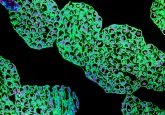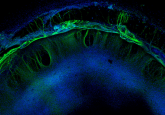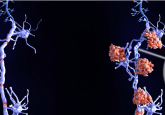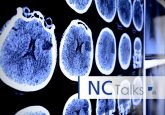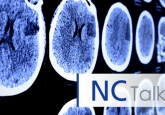NCTalks at AAIC 2017: Julie Williams on Alzheimer’s genetics
The plenary sessions at Alzheimer’s Association International Conference (AAIC; London, UK, 16–20 July 2017) have featured fantastic talks from leading experts in the field, so far addressing topics including biomarkers, targeting beta-amyloid, genetics, big data and the neurotoxicity of tau.
While at the conference, we sat down with Julie Williams, Professor of Neuropsychological Genetics at Cardiff University (UK) and the Chief Scientific Advisor of the Welsh Government, to hear more about her work on susceptibility genes in Alzheimer’s disease (AD).
Biography
 Julie’s 2009 publication of the first new AD susceptibility genes for 17 years was pivotal, made possible by her recognition of the complexity of AD genetics and her focus on developing powerful studies. She leads the GERAD (Genetic and Environmental Risk in Alzheimer’s Disease) consortium, shares leadership of the IGAP (International Genomics of Alzheimer’s Disease Project) consortium, incorporating over 150 scientists worldwide and a cohort of more than 90,000 participants, analyses of which have identified over 13 new AD susceptibility genes. With research interests encompassing GWAS, sequencing, exome chip association, cross disease complex phenotypic and statistical analyses, she has served on Boards for MRC Neuroscience and Mental Health, Alzheimer’s Research UK. Using her position to broaden scientific funding options, to increase research capacity and training, she actively campaigns to keep dementia research on the national agenda. She advises UK and Welsh Governments on policy. She is Dean of Research at Cardiff University School of Medicine, a NISCHR Senior Faculty member and was made a Commander of the Order of the British Empire (CBE) in the Queen’s Jubilee Birthday Honours list 2012.
Julie’s 2009 publication of the first new AD susceptibility genes for 17 years was pivotal, made possible by her recognition of the complexity of AD genetics and her focus on developing powerful studies. She leads the GERAD (Genetic and Environmental Risk in Alzheimer’s Disease) consortium, shares leadership of the IGAP (International Genomics of Alzheimer’s Disease Project) consortium, incorporating over 150 scientists worldwide and a cohort of more than 90,000 participants, analyses of which have identified over 13 new AD susceptibility genes. With research interests encompassing GWAS, sequencing, exome chip association, cross disease complex phenotypic and statistical analyses, she has served on Boards for MRC Neuroscience and Mental Health, Alzheimer’s Research UK. Using her position to broaden scientific funding options, to increase research capacity and training, she actively campaigns to keep dementia research on the national agenda. She advises UK and Welsh Governments on policy. She is Dean of Research at Cardiff University School of Medicine, a NISCHR Senior Faculty member and was made a Commander of the Order of the British Empire (CBE) in the Queen’s Jubilee Birthday Honours list 2012.
